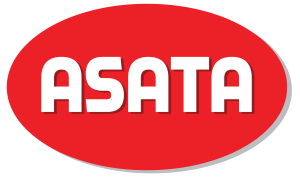Travellers and travel agents eyeing the declining price of oil and hoping airfares will drop as a result, will likely be disappointed.
Airlines have in the past been slow to scrap the fuel surcharges that were imposed in 2004 to recover the unexpected additional costs that rapidly rising oil prices had placed on them. The price per barrel dropped to 2012 levels in the past year.
At the time fuel surcharges were introduced, airlines said the introduction of a fuel surcharge as a separate fee was to show consumers why the cost of air travel was increasing. Others said it made it easier to adjust the ticket prices when costs changed so that only the fuel amount was increased when oil prices increased, not the price of the relevant airfare.
Whatever their reasons for doing so then, these are now moot as oil prices are sitting at levels lower than before fuel surcharges were introduced. So, have they been removed?
A quick check of the fare in your air ticket will reveal that the term “fuel surcharges” has indeed become a thing of the past. It is important to note however that a surcharge of sorts does remain – that of the carrier-imposed surcharges which airlines either include along with airport and government taxes and fees, or report separately.
And here lies the nub of the argument, says Otto de Vries, CEO ASATA. “Airlines have changed the name from fuel surcharges to carrier-imposed surcharges to comply with legislative requirements, but not removed these, despite there no longer being a need for a fuel surcharge.
“We would argue that by combining government-imposed taxes and fees with those levied by airlines under an umbrella charge – taxes, fees and carrier charges – consumers are led to believe that the government taxes and fees associated with their airfare are higher than they actually are.
“Consumers should be given an opportunity to discern the difference between a surcharge levied by the airline and those charges mandated by government – the latter being more acceptable to consumers when comparing airlines’ airfares – so that South African consumers can see up front and in a transparent manner what they are paying towards airfare.”
The question arises: Would a consumer be as willing to select a higher airfare over another if the base fare was increased to accurately reflect the airline’s operating cost, and not a surcharge they believe is government levied?
Back in 2012, the US Department of Transport stipulated that airlines needed to accurately distinguish between taxes and government fees on the one hand and carrier-imposed fees on the other, just to avoid the confusion among consumers.
Airline surcharges, like that of a fuel surcharge, says Flight Centre Travel Group MD Andrew Stark, should be put in place under extraordinary circumstances that exist at that time. “When the market normalises, as is the case with the oil price, that surcharge should be removed, not remain in place under a different name. The question we should be asking is whether airlines are hiding behind their current carrier surcharge to influence the competitiveness of their base fare?”
Noteworthy are the initiatives by airlines such as Qantas and Cathay Pacific that have eliminated the fuel or carrier surcharge outright and compensated for the lost income by raising their base fares. Although the move has not reduced overall air ticket prices, incorporating the operational costs within the base fare increases pricing transparency for consumers.
So, what is a carrier charge exactly? The International Airline Transport Association (IATA) defines it as a charge for airline use only. Airline Association of Southern Africa CEO Chris Zweigenthal explains that every carrier may define what they want to change and file it under that category.
“IATA has made that category available for carrier-imposed surcharges and it is up to each individual airline to do with it what they want and this is not regulated.”
Zweigenthal says from the consumer perspective, the most important thing to do is to look at the bottom line price when you want to compare the pricing of different airlines.
ASATA argues however that costs of doing business – those costs that are an inherent part of the airline’s operations – should be included in its base airfare, in the same way as other operation costs such as staff salaries. “Any variations of an airline ticket should be directly related to the cost of doing business, and supply and demand.”
Government Taxes and Airport Levies
Several charges contribute to the total airline ticket price. These include the base fare, in other words the basic price charge for the flight, as well as government- levied taxes, airport service fees and, in most cases, carrier surcharges. While most of these charges are set by government and cannot be amended by the airline, the carrier surcharge is entirely set by the airline levying it, and represented by the letters YQ or YR.
Other government- or airport-levied taxes or fees in South Africa specifically include:
- Passenger Service Charge South Africa: Levied by the Airports Company South Africa
- UMSE: A Passenger Safety Charge
- Air Passenger Tax South Africa: Applicable only on international flights, APT is charged by SARS.
- VAT: On domestic tickets only





